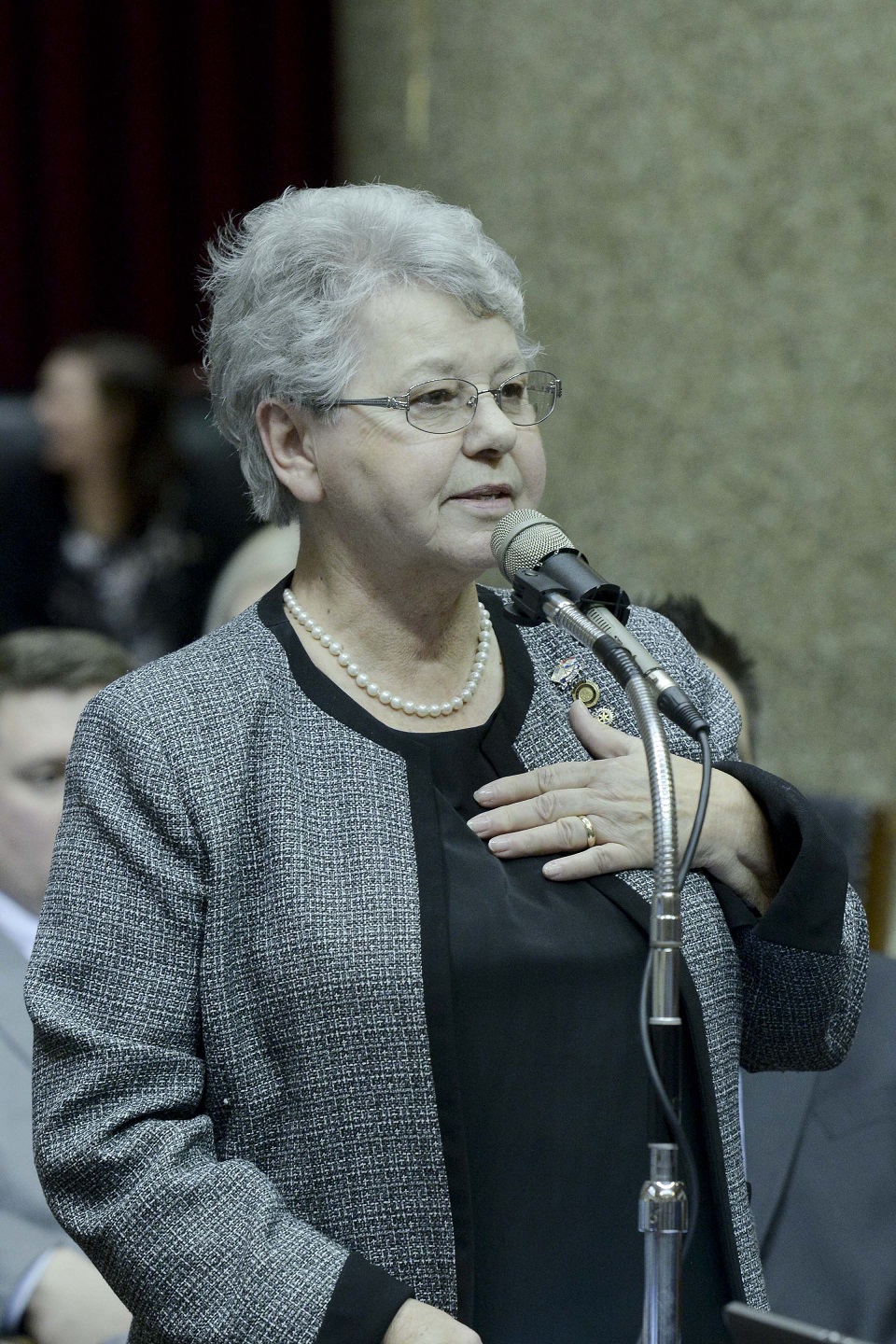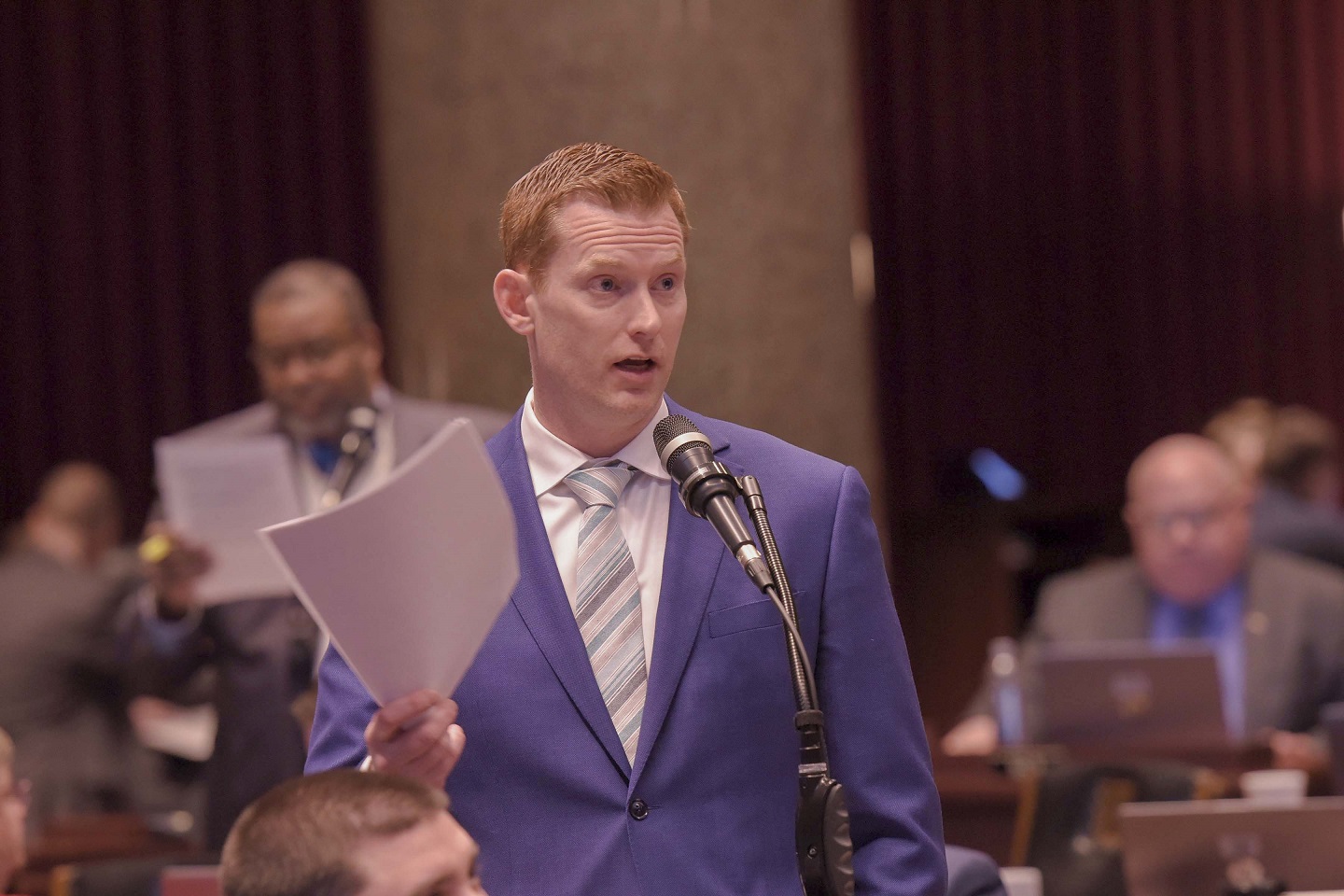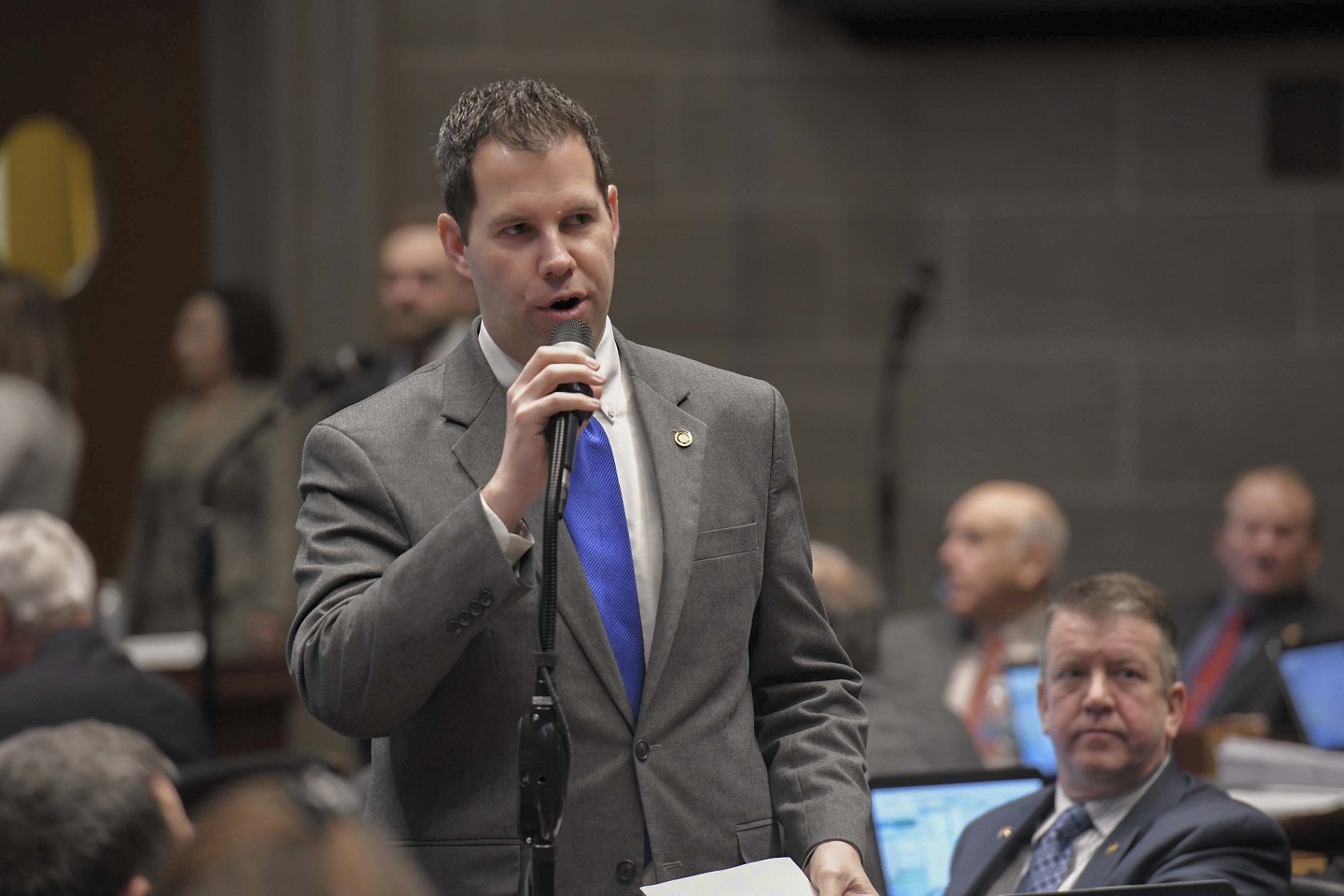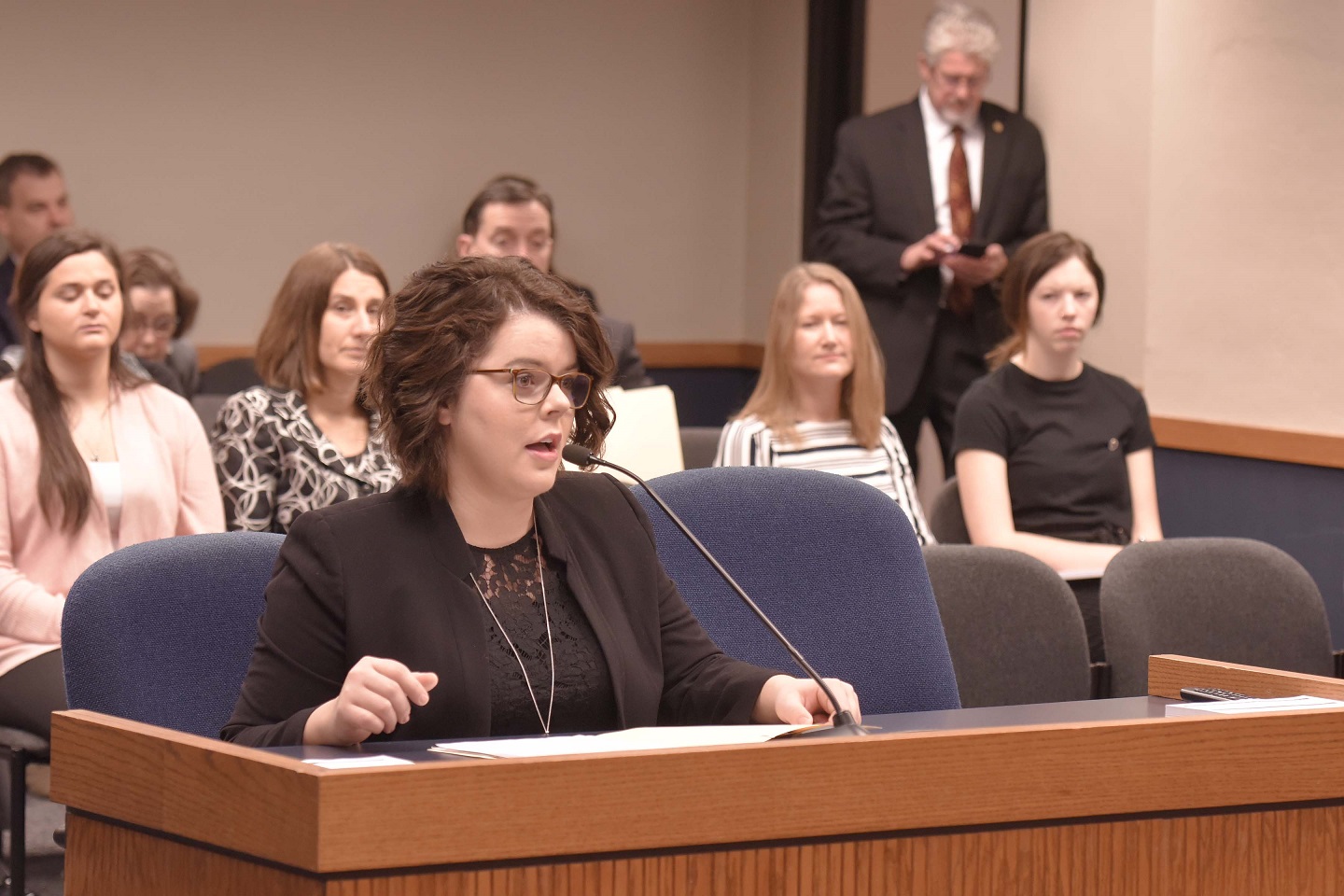House lawmakers are being asked to consider another measure meant to help victims of domestic violence get away from abusers and move on with their lives.
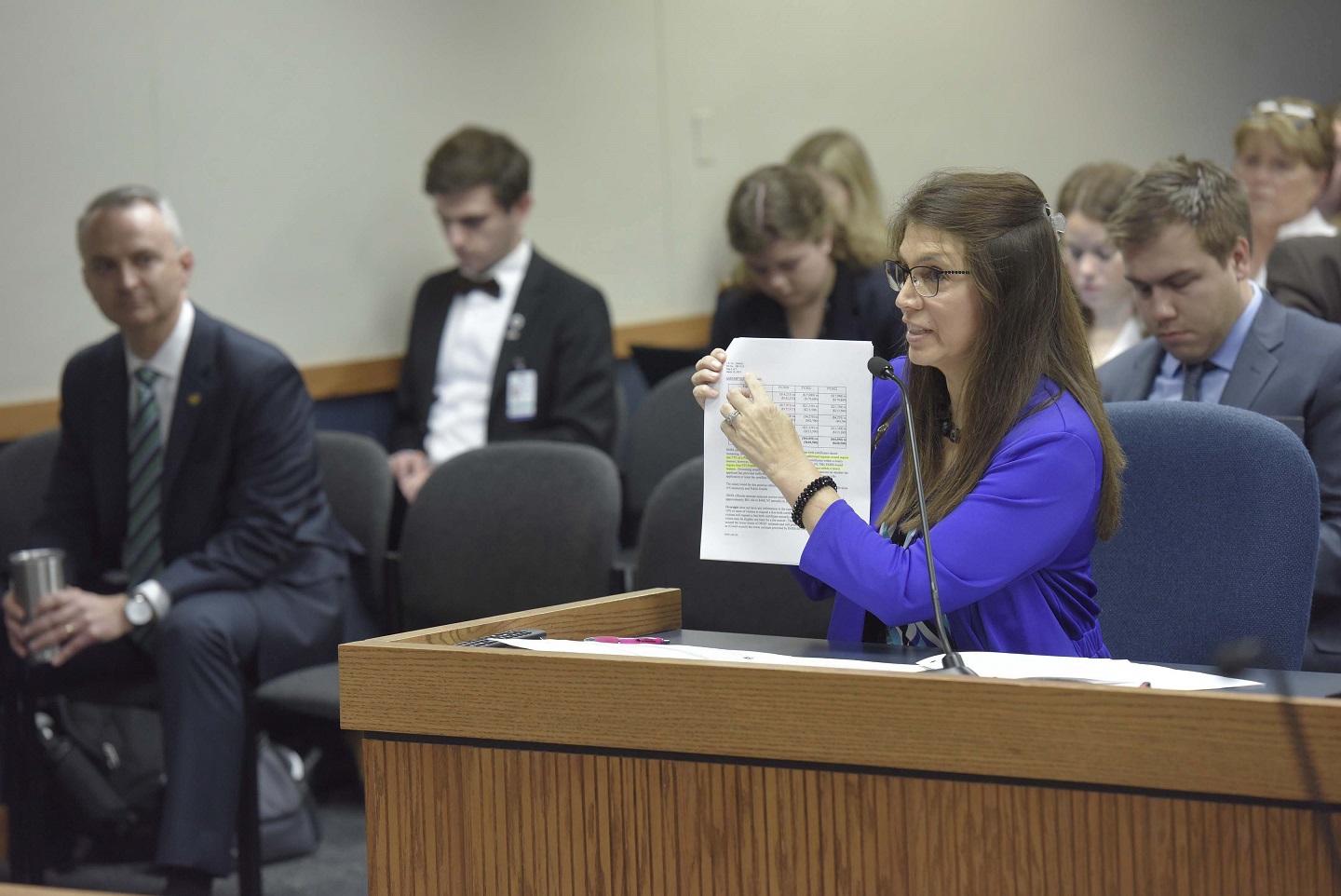
Often individuals who have left a home where abuse occurs have left behind birth certificates, as well as other documents and identification that they must get new copies of but cannot without those certificates. The fee to get a new copy is often a burden to a survivor faced with numerous other expenses while trying to start down a new path in life, according to Representative Chris Dinkins (R-Annapolis).
“To come up with $15 per kid to get them enrolled in school is sometimes a pretty [significant] hardship on them,” said Dinkins.
Dinkins is sponsoring House Bill 1135, which would allow people working with a shelter to get free copies of birth certificates.
She was presented with the proposal by the Southeast Missouri Family Violence Council. Assistant Director Tracy Carroll told the House Committee on Children and Families that abusers often use vital documents in their efforts to control a victim.
Carroll said most of the women that come into their shelter need this kind of help. Last year that included 200 of the 263 people that came in, yet the shelter, which is a nonprofit agency, had no budget for securing new copies of documents.
In one case Carroll said a mother in the shelter had eight children. At $15 dollars apiece, that was a particular hardship for her as she tried to get them enrolled in school while escaping an abusive situation.
Carroll said any cost the State of Missouri sees would be offset by victims being able to get their lives on track.
“They’ll be able to be employed, they’ll be able to get an education, they’ll be able to vote,” said Carroll. “Most of the women in our shelter have not been allowed to vote.”
Committee chair Sheila Solon (R-St. Joseph) said people escaping abuse have good reason for not having these documents on hand.
“I know when I’ve had constituents call my office and it’s a domestic violence situation, I always tell them, ‘Don’t go back home. Get to the shelter,’ so that’s probably, most of the time, why they don’t have their documents,” said Solon. “They’re doing the wise thing and not returning and trying to retrieve those.”
An individual would have to provide documentation from a shelter to prove that he or she is involved with such an agency. The bill would only allow the fee for each eligible individual’s birth certificate to be waived one time.
The committee has not voted on HB 1135.


